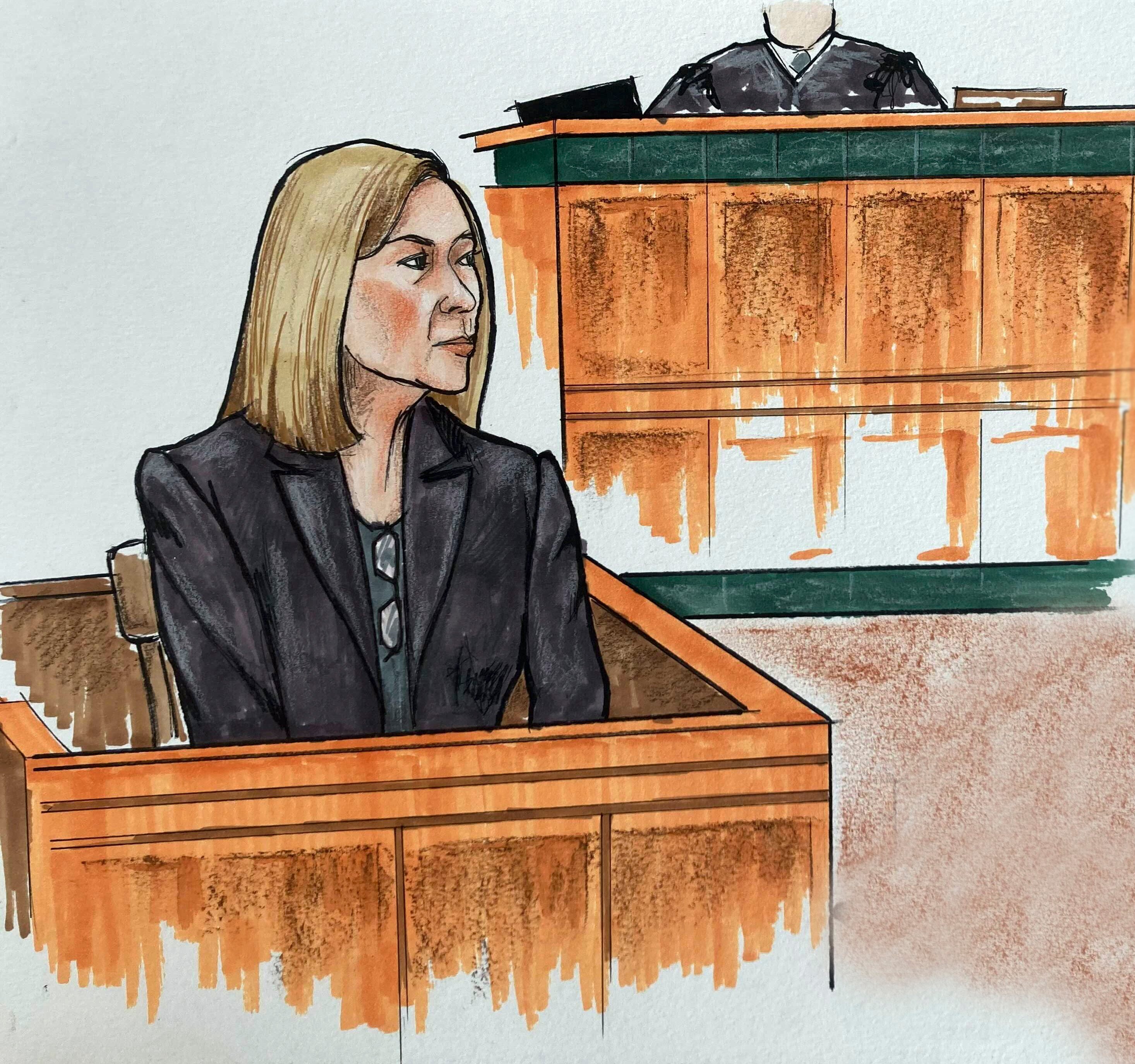Prosecutor: Newspaper gunman spoke of making trial 'a farce'
A prosecutor says the man who killed five people at a Maryland newspaper told a state psychiatrist that he intended to make “a farce” out of the second phase of his trial to determine whether he is criminally responsible due to his mental health

The man who killed five people at a Maryland newspaper told a state psychiatrist that he intended to make “a farce” out of the second phase of his trial to determine whether he is criminally responsible due to his mental health, a prosecutor said Wednesday.
Prosecutor Anne Colt Leitess referred to Jarrod Ramos comments during her cross-examination of a mental health expert called by defense attorneys.
In a case that is largely a battle between mental health experts, Leitess said Ramos told the state psychiatrist who interviewed him that he had obtained a copy of a diagnostic manual before speaking to mental health professionals to get a better understanding of how he could better present himself as mentally ill.
Leitess asked Dr. Catherine Yeager, a defense witness, whether it might not be in Ramos' interest to tell her the truth during mental health screenings and evaluations, because the outcome of the case now being presented to jurors will determine whether he goes to prison or a maximum-security mental health facility.
“It may not be. I don’t know," Yeager said, adding that she didn't think Ramos cared.
Leitess brought up a report of Dr. Sameer Patel, a psychiatrist with the state Health Department who interviewed Ramos six times for about 20 hours and concluded Ramos was legally sane. Patel is expected to testify later in the case.
Leitess noted that his report said Ramos came around to deciding to pursue a plea of not criminally responsible by reason of insanity when he learned his inevitable confinement would be better in a mental health facility than prison, partly because he would have access to a computer and the internet.
Yeager has testified that her interviews with Ramos support findings that he has autism, obsessive-compulsive disorder and delusional disorder. She has testified that Ramos has had a consuming obsession that he was defamed by a newspaper article written in the Capital Gazette in 2011 about his guilty plea to harassing a former high school classmate online, an article Ramos thought wrongly made him sound insane.
“The delusion is he was somehow defamed. His reputation was ruined," Yeager testified. "He could no longer be a presence in society because everyone would know he was written about as crazy.”
Ramos already pleaded guilty in 2019 to 23 counts in the killings of Wendi Winters, John McNamara Gerald Fischman, Rob Hiaasen and Rebecca Smith at the newspaper on June 28, 2018.
Ramos, 41, had a well-documented history of harassing the newspaper’s journalists. He filed the defamation lawsuit against the paper in 2012. The lawsuit was dismissed as groundless.
Defense attorneys are presenting their case first. Their last mental health witness, Dr. Dorothy Lewis, contends Ramos is not criminally responsible due to mental illness. She is expected to testify later Wednesday or Thursday. Prosecutors will be calling expert witnesses of their own.
Under Maryland’s insanity defense law, a defendant has the burden to show by a preponderance of the evidence that he is not criminally responsible for his actions. State law says a defendant is not criminally responsible for criminal conduct if, because of a mental disorder or developmental disabilities, he lacked substantial capacity to appreciate the criminality of his conduct.
Judge Michael Wachs told the jury Wednesday — the sixth day of the trial — that the case could reach closing arguments by the middle of next week.